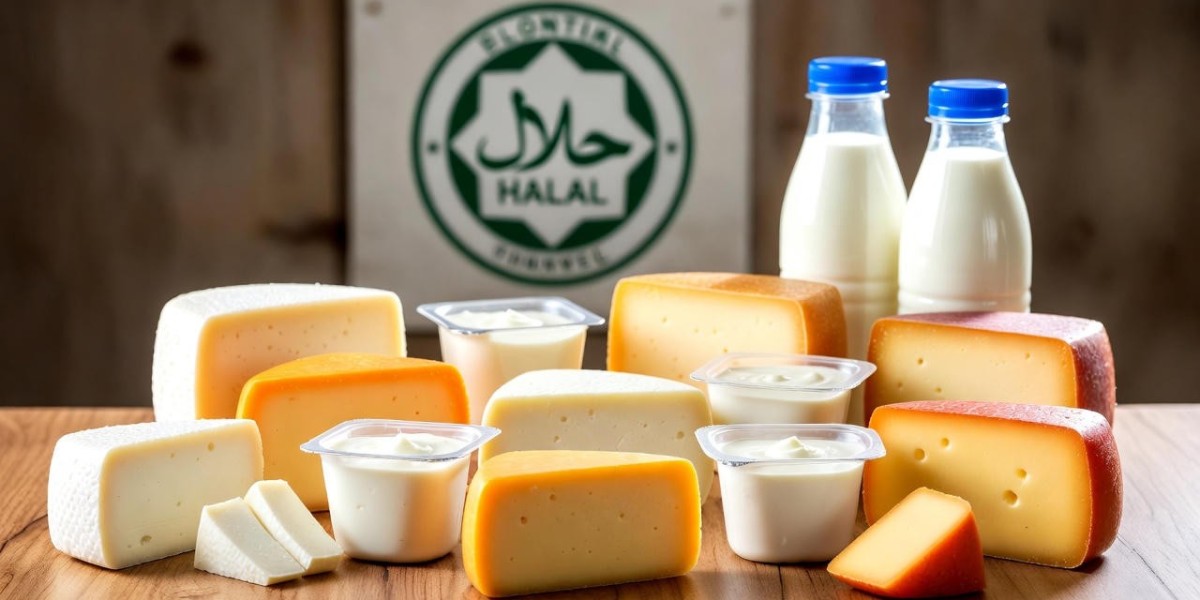The global halal food market continues to expand rapidly, with Muslim consumers seeking trustworthy certification for their dairy products. Manufacturers who want to tap into this lucrative market need proper certification that meets Islamic dietary laws. This process ensures products comply with strict requirements and opens doors to millions of consumers worldwide.
Why Dairy Manufacturers Need Certification
Muslim consumers make purchasing decisions based on religious compliance. When shopping for dairy items, they look for clear halal symbols and verification. Without proper credentials, manufacturers miss significant market opportunities across North America, Europe, and Asia.
The certification process provides several benefits beyond religious compliance. It demonstrates commitment to quality standards, transparency in production, and respect for consumer values. Many retailers now require this verification before stocking products on their shelves, making it essential for market access.
Understanding the Certification Process
Obtaining halal dairy certification requires manufacturers to undergo thorough evaluation of their entire production chain. This includes ingredient sourcing, processing methods, equipment usage, and storage practices. Every component that touches the product must meet Islamic dietary requirements.
The process begins with an application to an accredited certifying body. Inspectors then visit facilities to assess operations, review ingredient lists, and examine production procedures. They verify that no forbidden substances come into contact with dairy products during manufacturing.
For products like cheese, the certification becomes more complex. Traditional cheese-making uses rennet, an enzyme often derived from animal sources. Manufacturers seeking halal cheese certification must ensure their rennet comes from halal-slaughtered animals or use microbial alternatives. The entire aging and processing environment requires scrutiny to prevent cross-contamination.
Requirements for Different Dairy Products
Milk seems straightforward since it comes directly from cows, goats, or other permissible animals. However, dairy milk halal certification still requires verification. Processors must prove their cleaning agents, additives, and processing aids meet halal standards. Even seemingly innocent additions like vitamin D supplements need verification, as some vitamins use animal-derived carriers.
Cheese presents unique challenges due to its complex production. Beyond rennet concerns, manufacturers must address starter cultures, mold strains for blue cheese, and any flavorings added during production. A halal dairy certificate for cheese products requires documentation for every ingredient and processing aid used throughout manufacturing.
Yogurt, butter, ice cream, and other dairy derivatives each have specific considerations. Gelatin stabilizers, flavor extracts, and color additives all require verification. Manufacturers must maintain detailed records showing compliance for every ingredient batch.
Selecting a Certification Body
Choosing the right certifying organization significantly impacts market acceptance. Different regions recognize different certification bodies, so manufacturers must consider their target markets. Some organizations have stronger recognition in specific countries or regions.
Halal certification for milk in USA requires working with organizations recognized by American Muslim communities and retailers. Several established bodies operate across North America, each with slightly different procedures and recognition levels. Manufacturers should research which certifiers their target retailers and consumers trust most.
When evaluating halal dairy certification Providers, consider their inspection thoroughness, industry reputation, and geographic recognition. Ask about their auditing frequency, documentation requirements, and ongoing compliance monitoring. Some providers offer additional services like halal training for staff or assistance with ingredient sourcing.
Cost varies significantly between providers. Larger operations typically pay more due to facility size and production complexity. However, cheaper isn't always better—weak certification may not satisfy consumers or retailers, wasting the investment entirely.
Documentation and Ingredient Management
Successful certification requires meticulous record-keeping. Manufacturers must document every ingredient source, maintain supplier certifications, and track production batches. This paper trail proves compliance and helps quickly address any questions from certifiers or consumers.
Ingredient management becomes critical for maintaining halal certification for cheese and other complex dairy products. Suppliers must provide halal certificates for their materials, and these certificates need regular renewal. One expired certificate can jeopardize entire production runs.
Many manufacturers implement supplier approval programs, vetting ingredient sources before use. This proactive approach prevents compliance issues and streamlines recertification processes. Digital tracking systems help manage the extensive documentation requirements efficiently.
Maintaining Certification Over Time
Certification isn't one-and-done—it requires ongoing compliance and periodic audits. Certifying bodies conduct surprise inspections to verify manufacturers maintain standards between scheduled audits. Any formula changes, new suppliers, or equipment modifications require immediate notification and approval.
Staff training plays a vital role in maintaining compliance. Employees must recognize which ingredients and practices are permissible. Regular training sessions keep everyone informed about requirements and prevent accidental violations.
Cross-contamination prevention requires constant vigilance. Facilities producing both halal and non-halal items need strict separation protocols. Dedicated equipment, separate storage areas, and thorough cleaning procedures between production runs all help maintain integrity.
Market Advantages of Certification
Certified manufacturers access growing consumer segments. The Muslim population continues expanding globally, and purchasing power within these communities increases steadily. Certified products command shelf space in mainstream supermarkets, specialty stores, and international markets.
Beyond Muslim consumers, many non-Muslims choose halal products for perceived quality and ethical standards. The rigorous certification process signals attention to ingredients, cleanliness, and transparency that appeals broadly.
Export opportunities multiply with proper certification. Many countries require halal verification for imported dairy products. Having established certification simplifies entering these markets and building distribution partnerships.
Taking the Next Steps
Manufacturers ready to pursue certification should start by contacting several certifying bodies. Compare their requirements, costs, and market recognition. Conduct an internal audit identifying potential compliance gaps before formal application.
Budget time and resources for the process—initial certification typically takes several months. Factor in potential production changes, ingredient substitutions, or equipment modifications. Planning ahead prevents rushed decisions that could compromise certification success.
The investment in proper certification yields substantial returns through market access, consumer trust, and competitive differentiation. As global demand for verified halal dairy products grows, certified manufacturers position themselves for sustained success in this expanding market.



